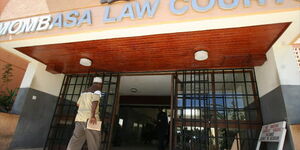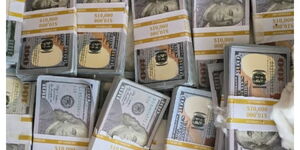They say that hard work and perseverance pays and there is no better person prove that fact quite like Edwin Kagombe.
Roughly 20 years ago, Kagobe recalls being a desperate rice hawker from Ngurubani town in Mwea, Kirinyaga County who sold the commodity from village to village. At the time, the sector was still controlled by the government.
“Hawking along the dusty streets of Ngurubani town was not easy but since I was aiming for the skies, I soldiered on,” he told The Standard.
At the time, the government, through the National Irrigation Board (NIB) had pegged the price of paddy rice at Ksh30. Kagombe would mill it and hawk at Ksh75.
With time fortunately, the government liberalised the industry and allowed other people who had the chance to produce the commodity in large scale, including Kagombe, rise to the occasion.
Taking advantage of the opportunity, he established himself as an authority in the business and now runs a rice mill, Tai Rice Mill, valued at Ksh100 million.
He further divulged that he has employed a staff of 20 people who work at the miller that produces 30 tonnes per day and is housed by a godown.
To get to the top, however, came with it challenges including the time when public servants would stop to buy his products but then speed away without paying.
He also revealed that it was a challenge securing a financier at the time when he was setting up the company since they wanted some collateral.
“If one has the finances and wants high quality mills, I would recommend machines from Britain and Germany but if you just want something functional at an affordable cost, China is the place to go,” he continued while revealing that he bought his machine from China.
He disclosed that he made the purchase from the Asian country since their machines are relatively cheaper. Rice millers equivalent to that of Kagombe in the European nations of Britain and Germany are valued at Ksh350 million.
He still faces challenges especially with the rampant importation of cheap Pakistani rice that is mixed with genuine Mwea's and sold off to unsuspecting customers.
“The cheap Pakistan grain is dumped into a big store in Mwea always after every harvesting season since the sector was liberalised in 1998.
“The adulteration of the pure Mwea pishori with cheap imports has affected business and now consumers have become extra cautious,” he stated.












